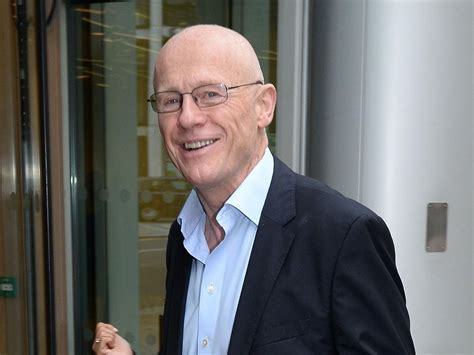A Quote by Bret Weinstein
I don't think that we can say that the entire educational apparatus is a failure. But we can say that the part of the apparatus that is a failure is taking over more and more territory.
Related Quotes
Not many people are willing to give failure a second opportunity. They fail once and it is all over. The bitter pill of failure is often more than most people can handle. If you are willing to accept failure and learn from it, if you are willing to consider failure as a blessing in disguise and bounce back, you have got the essential of harnessing one of the most powerful success forces.
Too much apparatus, designed to guide us in experiments and to supplement the exactness of our senses, makes us neglect to use those senses...The more ingenious our apparatus, the coarser and more unskillful are our senses. We surround ourselves with tools and fail to use those which nature has provided every one of us.
The power of fear of failure, with will to win, is an incredible force. I don't think we should be worried about having a fear of failure; I think it's quite natural. If you surveyed any top businessman or any top athlete, I bet if they were truthful, they would all say they've got a fear of losing and a fear of failure.
I think failure is nothing more than life's way of nudging you that you are off course. My attitude to failure is not attached to outcome, but in not trying. It is liberating. Most people attach failure to something not working out or how people perceive you. This way, it is about answering to yourself.
Surprisingly, it's forgiveness, not guilt, that increases accountability. Researchers have found that taking a self-compassionate point of view on a personal failure makes people more likely to take personal responsibility for the failure than when they take a self-critical point of view. They also are more willing to receive feedback and advice from others, and more likely to learn from the experience.

































